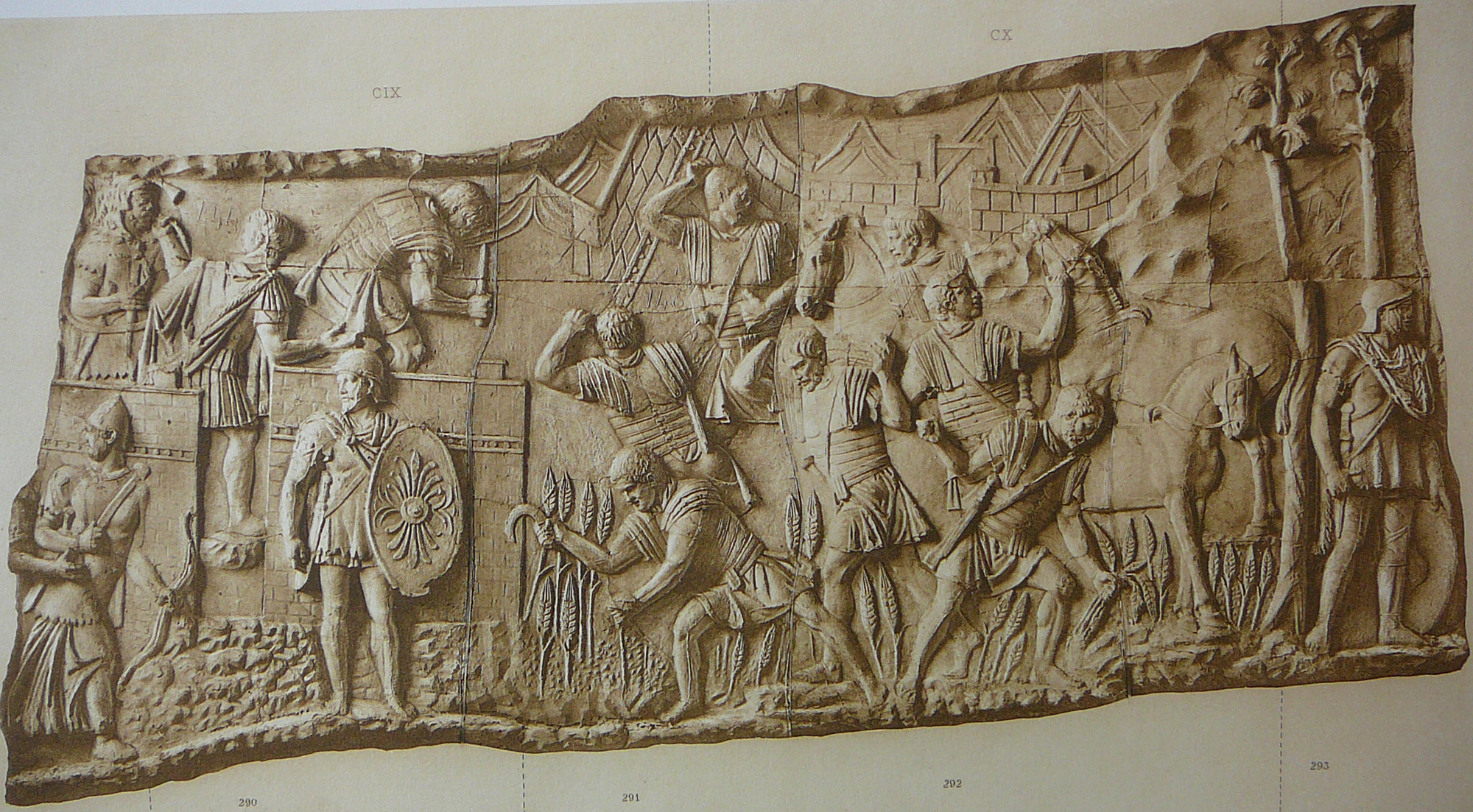Know your enemy!
The grain officers in espionage in the times of Imperial Rome

Frumentarii taking care of supplies, in this case depicted during the wheat harvest. Detail from Trajan's Column. Image taken from WikiCommons.
In Imperial Rome, the men engaged in espionage and intelligence activities—what we would now call intelligence agents—were the frumentarii (grain officers). The emperor Domitian (r. 81-96 AD) established them as a special unit, assigning them the task of securing food supplies for the Roman army. However, the frumentarii also served as couriers, spies, and tax collectors; in some cases, according to Rose Mary Sheldon, they were even authorized to carry out arrests and assassinations. Due to their role, which required constant interaction with the army, bureaucratic apparatus, and local populations, the frumentarii were ideally positioned to observe and report any information of interest to the authorities. It is estimated that each legion had between five and ten frumentarii, bringing the total available to the emperor to around two hundred. One of the essential privileges of their role was the free and unrestricted use of the cursus publicus, a sophisticated network of roads and service stations established by Emperor Augustus. This allowed for faster communication between Rome and the Empire’s outskirts. Cassius Dio, in his Roman History, even recounts that Macrinus, defeated in the Battle of Antioch (218 AD) by the future Emperor Elagabalus, disguised himself in a frumentarius uniform to use the cursus publicus as an escape route; apparently, no one recognized him. However, by the end of the third century, Emperor Diocletian (r. 284-305) was forced to abolish the *frumentarii* due to their growing unpopularity in the Empire, as they enjoyed nearly uncontested power. Nevertheless, Diocletian understood the utility of such a force and simply performed a "rebranding" operation—reorganizing the *frumentarii* into a new unit, the agentes in rebus.
Cassio Dione, Storia romana, vol. 6, LVIII, 9, 3-5.
Rose Mary Sheldon, Intelligence Activities in Ancient Rome: Trust in the Gods but Verify (London: Frank Cass, 2005), pp. 250-257.
William G. Sinnigen, 'The Roman Secret Service', The Classical Journal 57, no. 2 (1961): 65-72.
2025-07-30
Salvatore Ciccarello
